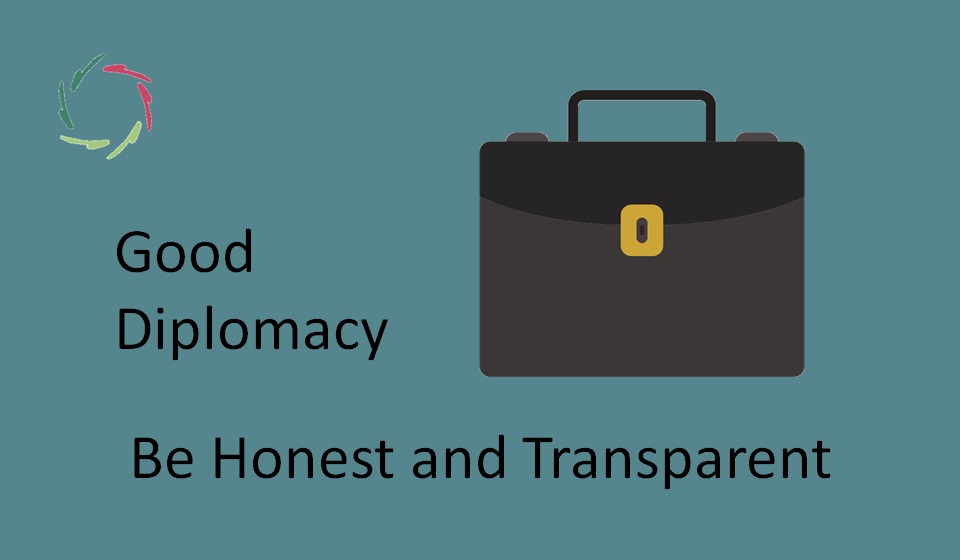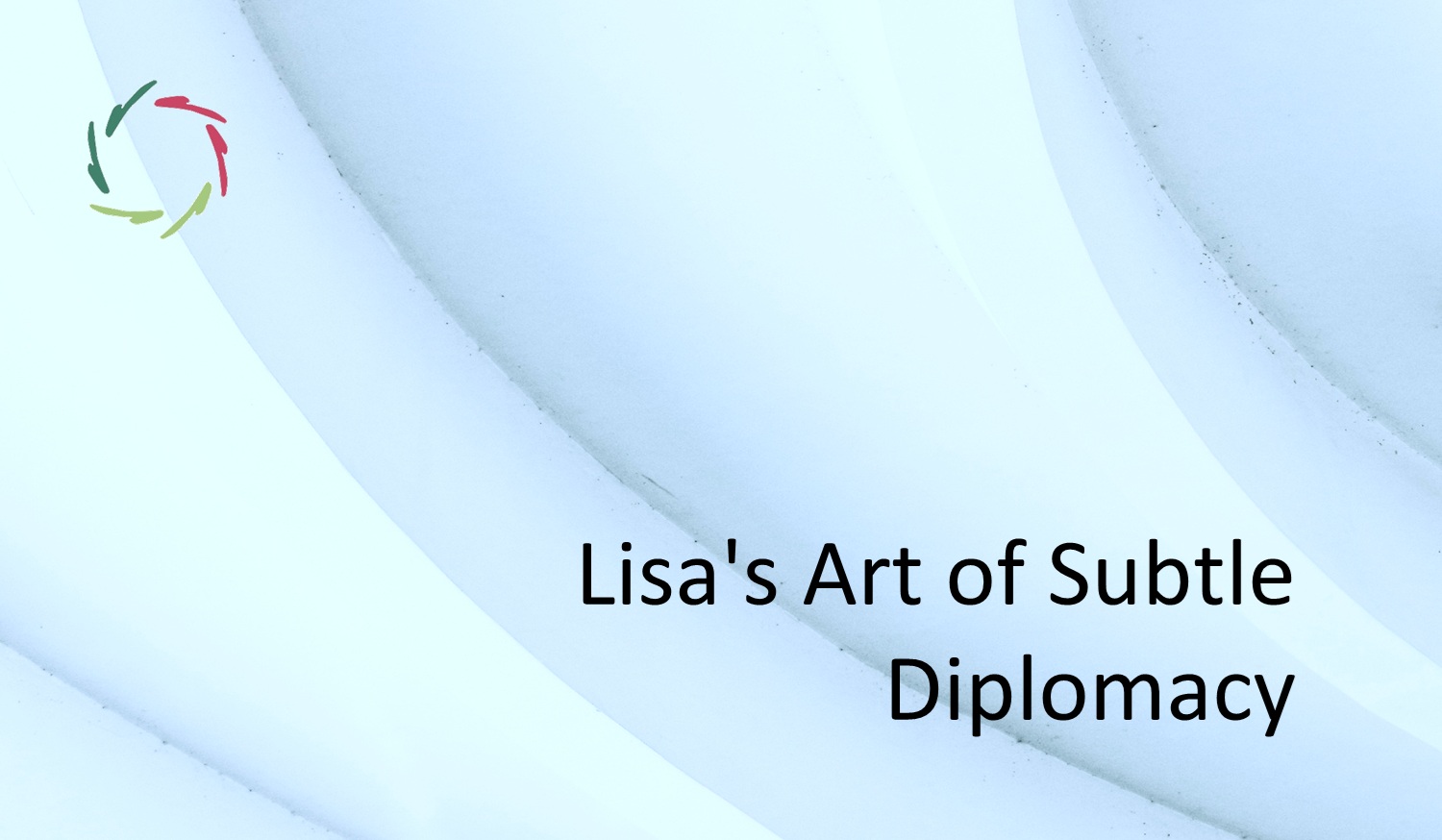Be Honest and Transparent: Honesty and Transparency Build Credibility

By being honest and transparent, diplomats and negotiators can build a solid foundation of trust and credibility, making it easier to navigate complex issues and reach mutually beneficial agreements.
Clearly articulating intentions and being open about motives can help create a foundation for mutual respect and cooperation.
―
BEFORE TAKING THIS IN, PLEASE FIRST READ ‘TEN TIPS FOR GOOD DIPLOMACY’!
This is the fourth tip of the series.
―
Key Aspects
Prepare clear statements
- Before discussions, prepare clear and concise statements about your intentions and objectives.
- Example: “Our primary goal in this negotiation is to establish fair trade terms that benefit both parties.”
Clearly state your intentions
- Clearly articulate your goals and objectives.
- Avoid ambiguity to ensure the other party understands your position.
Use open communication
- Encourage open communication and be willing to share relevant information.
- Example: “We are willing to share our data and research to help you understand our position better.”
Be open about motives
- Share the reasons behind your actions and decisions.
- Transparency about your motives helps build trust.
Acknowledge mistakes
- Admit to any mistakes or oversights.
- Taking responsibility demonstrates integrity and honesty.
Acknowledge and address concerns
- Acknowledge the other party’s concerns and be transparent about how you plan to address them.
- Example: “We recognize that you have concerns about environmental impacts. Here are the measures we’re taking to mitigate these effects.”
Provide accurate information
- Ensure that all information shared is accurate and truthful.
- Avoid exaggeration or misrepresentation of facts.
Admit when you don’t know
- If you don’t have an answer, be honest about it and commit to finding the information.
- Example: “I don’t have that information right now, but I will get back to you with a detailed response as soon as possible.”
Maintain consistency
- Be consistent in your words and actions.
- Consistency reinforces your credibility and reliability.
Respect confidentiality
- Be transparent about what information can and cannot be shared.
- Respecting confidentiality builds trust and shows professionalism.
Examples
Trade negotiations: During trade negotiations, one country is concerned about the potential impact on its local industries. An honest response might be
- “We understand your concerns about local industries. Our goal is to find a trade agreement that benefits both our economies. Here are the specific areas we’re willing to negotiate on to address your concerns.”
Conflict resolution: In a conflict resolution scenario, acknowledging past mistakes can be powerful. For example
- “We acknowledge that our previous actions have contributed to the current tensions. We are committed to making amends and finding a path forward that respects both our interests.”
Community engagement: When engaging with a community about a new development project, being transparent about potential impacts is crucial. For instance
- “This project will bring economic benefits to our community, but it will also cause some disruptions. We are committed to minimizing these impacts and supporting affected residents. Here’s how we plan to do that.”


